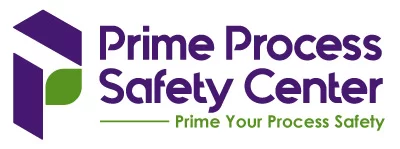
Process safety is paramount in the chemical industry to prevent accidents like toxic releases, fires, and explosions, ensuring personnel, environmental, and community safety. It starts with identifying and assessing potential hazards through rigorous chemical and process analysis. Robust safety systems, including Safety Instrumentation Systems (SIS) and pressure relief devices, are implemented to prevent chemical releases and enable safe shutdowns during emergencies. Compliance with regulatory standards like OSHA’s Process Safety Management and the EPA’s Risk Management Program is a must, with a commitment to continuous improvement. Personnel training and a strong safety culture are equally vital, as an informed and safety-conscious workforce plays a key role in maintaining process safety standards.
The chemical industry is inherently exposed to significant risks of fire, explosion, and accidental releases due to the nature of the substances it handles and the processes it employs. Key hazards include:
- Chemical Reactivity and Explosions: Many chemicals used in the industry are highly reactive. Improper handling, storage, or mixing of these chemicals can lead to violent reactions and explosions.
- Flammable Substances: The handling and processing of flammable liquids, gases, and solids pose a constant risk of fire, especially if they come into contact with ignition sources.
- Toxic Releases: The accidental release of toxic chemicals can pose serious health hazards to workers and the surrounding community. Such releases can occur due to equipment failure, human error, or during the transportation of chemicals.
- Combustible Dust Explosions: Dust from solid chemicals can become explosive when suspended in air in the right concentrations. An ignition source in such an environment can lead to a devastating dust explosion.
- Process Upsets and Equipment Failures: Uncontrolled process conditions, such as overheating or over-pressurization, can lead to fires or explosions. Equipment failures can also result in the release of hazardous chemicals.
- Corrosion and Material Failure: Chemicals can corrode or degrade materials used in storage tanks, pipelines, and processing equipment, potentially leading to leaks or catastrophic failures.
- Storage Hazards: Inadequate storage practices can lead to incidents, especially if incompatible chemicals are stored together or if storage conditions do not meet the required safety standards.
- Ignition Sources: Common operations like electrostatics, hot work, or electrical work can provide ignition sources that can trigger fires or explosions in areas where flammable or explosive chemicals are present.
To mitigate these risks, the chemical industry employs rigorous safety measures, including hazard identification and risk assessment, regular equipment maintenance, use of appropriate safety gear, strict adherence to safety protocols, and emergency preparedness and response plans. Regular training for staff to handle chemicals safely and respond effectively in emergency situations is also crucial.Top of Form
Why Work with Prime Process Safety Center
- Specialized Chemical Industry Knowledge: Our expertise is specifically tuned to the unique process safety challenges in the chemical industry, ensuring relevant and effective solutions.
- Tailored Risk Management Approaches: We design risk management strategies that are customized to meet the specific needs and complexities of your chemical processes.
- Regulatory Compliance Expertise: Our deep understanding of industry-specific regulations ensures that your operations remain compliant with evolving process safety standards.
- Advanced Analytical Techniques: We utilize the latest analytical tools and technologies for precise hazard identification and risk assessments, enhancing process safety and efficiency.
- Cultivating a Safety-First Culture: We prioritize building a proactive safety culture within your organization, essential for the ongoing management and improvement of process safety.
- Focused Employee Training and Development: Our training programs are tailored to equip your employees with the necessary skills and knowledge for a safe chemical processing environment.
- Ongoing Support and Adaptability: We offer continuous support and adapt our strategies to keep pace with the changing challenges and regulations in the chemical industry.
- Diverse Sector Experience: Our wide-ranging experience in various segments of the chemical industry provides us with a broad perspective and innovative approaches to tackle process safety issues.
- Operational Integrity and Efficiency: Our collaboration aims to enhance not just the safety but also the overall operational excellence of your processes, contributing to long-term industrial success.
- Collaborative and Integrated Solutions: We work closely with your team to understand and integrate our solutions seamlessly with your existing operations, ensuring effectiveness and cohesion in addressing process safety challenges.

